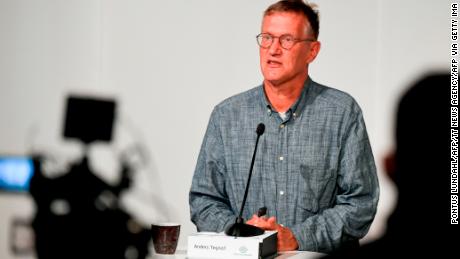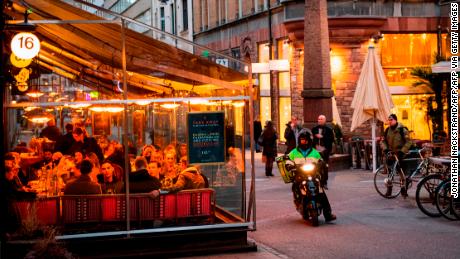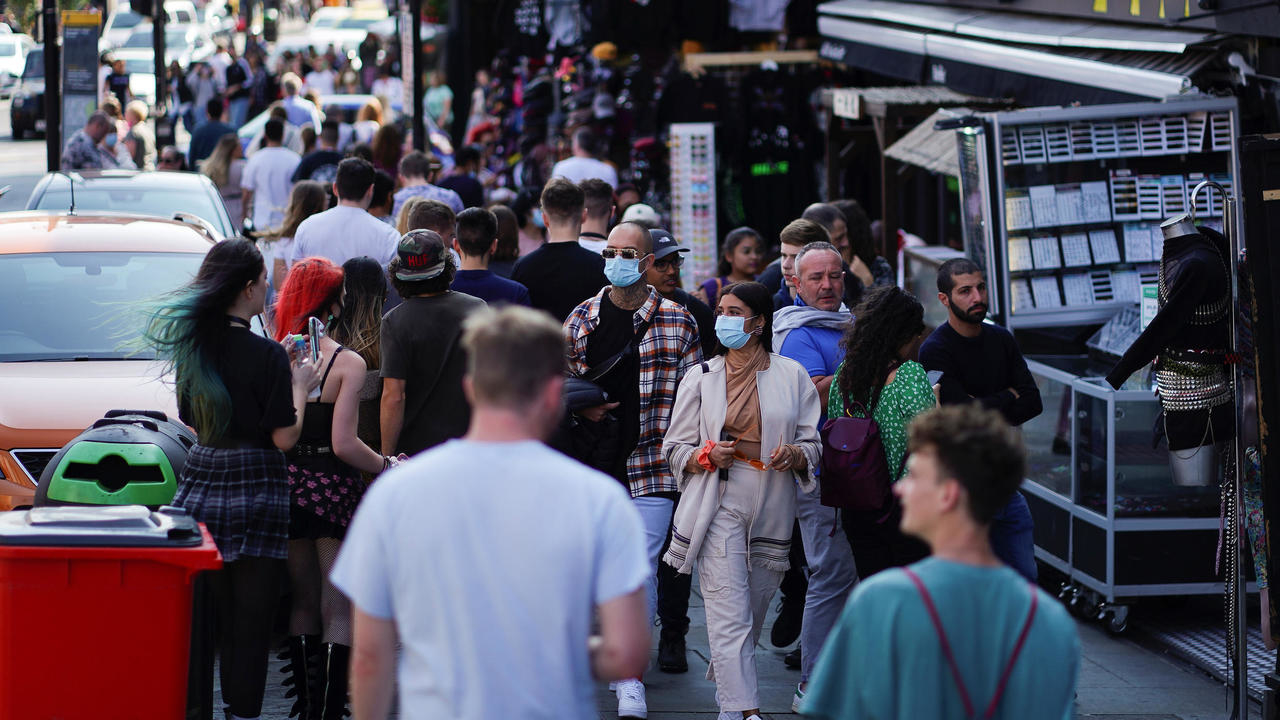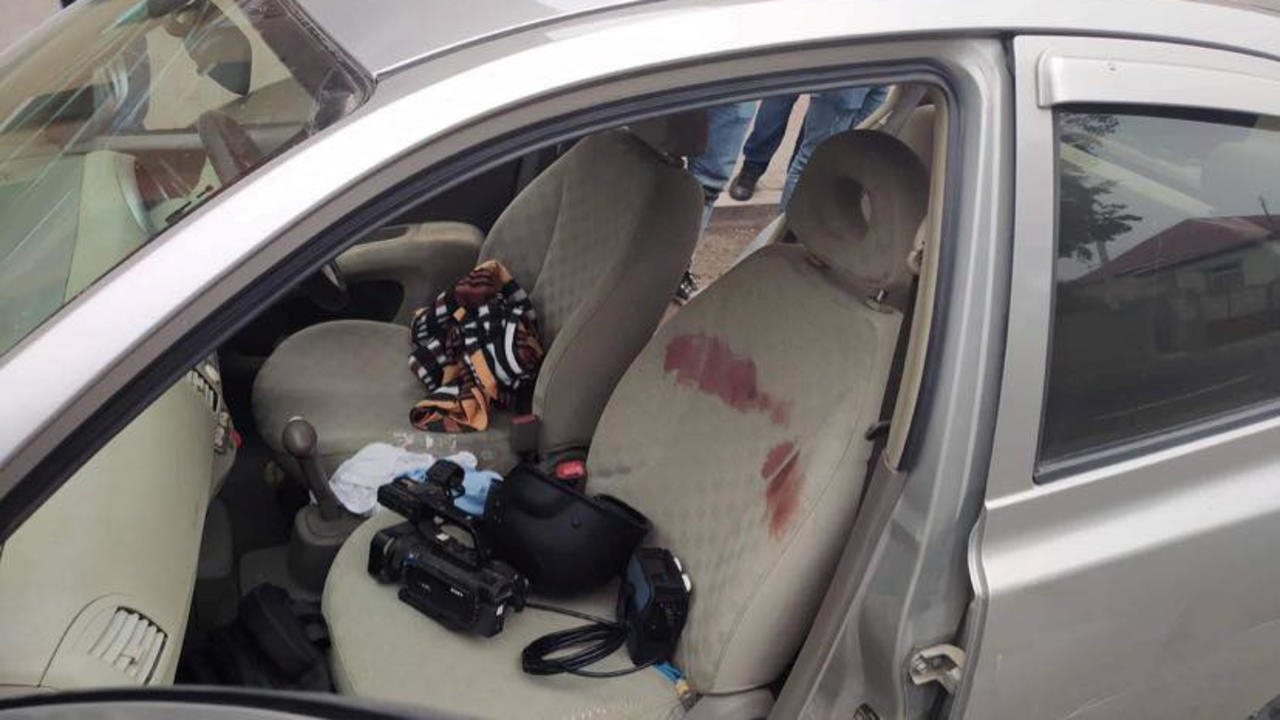Some countries are eying Sweden’s ‘light-touch’ Covid response. It’s a gamble that could backfire

Such comments have emboldened governments flirting with the idea of adopting Sweden's "light-touch" approach, in the hope they can soften the blow to their economies. There was reason for optimism when Kim Sneppen, from the Niels Bohr Institute in Copenhagen, made his comments. Sweden's infection and death rates had been low for weeks, despite a second wave rolling over Europe. It seemed to mark a turnaround for the country, which experienced one of the highest death tolls in the world per capita during the spring. The problem is, the science isn't in on whether immunity is building in Sweden at all, after the country resisted lockdowns and let the virus spread through much of its population.UK Prime Minister Boris Johnson, nonetheless, announced changes to restrictions in England last week, shaping the country's Covid-19 response in the image of Sweden's. Experts in both the UK and Sweden are warning that doing so could be dangerous.The UK has been experiencing record high numbers in daily infections, yet Johnson tightened restrictions only slightly, placing more emphasis on personal responsibility to prevent viral transmission, as Swedish authorities have done. The most significant change to the rules is a 10 p.m. curfew for pubs, bars and restaurants, forcing them to close just an hour earlier than they typically did. Now only table service is allowed, to avoid people lining up at bars to order food and drinks, as is the case in Sweden.As most of the Western world went into lockdown over the spring, Sweden's response was an outlier. It only issued advice to its citizens to practice social distancing and personal hygiene. Sweden typically doesn't mix public health and politics, and it doesn't typically use the law to influence behavior to protect people's health. So it kept open its bars and restaurants, as well as schools for under-16s, as other countries had them shuttered.But even Sweden's government now admits that this likely contributed to its high death toll of more than 5,800 people in the country of around 10 million. Almost half of those deaths occurred in Sweden's care homes for the elderly.While UK Foreign Secretary Dominic Raab has insisted that likening the UK's new measures to Sweden's is a mischaracterization, a Downing Street spokesperson confirmed to CNN that the Prime Minister took advice from the architect of Sweden's response, Anders Tegnell, just two days before he announced his Swedish-style changes."The Prime Minister canvassed a wide variety of scientific opinions over the weekend and on Sunday he took evidence from a number of scientists, which he used to formulate the package of measures he introduced," the spokesperson said. "It was an opportunity for people to give advice freely."
Herd immunity debate resurfaces
It's too soon to declare victory in Sweden, and even officials in the country are making clear they are not out of the woods. After a deadly spring and summer, the situation in Sweden appeared under control — its infection rate is around 38 cases for every 100,000 people, EU data shows. In the UK, it's around 87 and in Spain it's 320. But there has been an uptick in Sweden in the past week, and Tegnell himself has conceded that authorities may now need to implement tighter restrictions at the local level and recommend mask-wearing in public areas, like shops, for the first time since the virus arrived — something he has spoken out against doing for months. On Thursday last week, Swedish Prime Minister Stefan Löfven described the increase in cases as "worrying."Sweden's Public Health Agency denied the country was backpedaling in its approach, saying in an email to CNN that it had always been prepared to advise the use of masks and impose restrictions in certain situations. But the recent interest in Sweden has marked a return to the debate on "herd immunity," the idea that if a certain percentage of your population is immune to a virus, the virus cannot transmit easily and will eventually die out. Scientists say that many viruses can be combated this way when 60-70% of a population is immune but that is usually achieved with a vaccine. A White House coronavirus taskforce member, Dr. Scott Atlas, has denied reports that he advocated adopting Sweden's model in the US or that he was a proponent of the "herd immunity" approach. But a senior administration official told CNN that all the policies Atlas had pushed for were in the vein of a herd immunity strategy.But research shows that even in hard-hit cities, like Stockholm, only around 15% of people tested positive to Covid-19 antibodies. In the US, less than 10% of people have tested positive, well short of herd immunity. How much proteccartion those antibodies give and for how long are also unknowns.During the pandemic, much of the talk about immunity has focused on antibodies, but researchers are also looking at T cells, which can fight a virus after infection and play a role in immunity, as well.One peer-reviewed study by researchers from Sweden's Karolinksa Institutet showed a higher than expected level of T-cell reaction in the blood samples of healthy people. They tested people with either mild or asymptomatic Covid-19, as well as healthy blood donors, as a control group. What was surprising was that T-cell reactions were seen in 30% of healthy blood donors who had no known history of Covid-19 infections. That's twice the rate of people who tested positive for Covid-19 antibodies in Stockholm. Researchers hope that these results mean there is much more immunity in the population that previously thought. Immunologist Cecilia Söderberg-Nauclér, who is also from the Karolinska Institutet but did not work on the study, warned that there was no clear evidence yet that what was happening in test tubes was actually playing out in real life. In other words, no one knows for sure that having T cell reactions to the virus in your blood actually means they will help a person infected with the novel coronavirus. She also explained that even if the T cells did fight the virus, governments shouldn't allow Covid-19 to simply rip through the public in an attempt to build herd immunity. There are two reasons for that: It's not clear that past Covid-19 infections are even the reason T cells are reacting to the virus in test tubes. She pointed to another study that showed T cell reactions in 40 to 60% of samples from blood donors from 2018, long before the virus was presumably transmitted to humans for the first time.That suggests that something else — perhaps past infections of similar viruses — were causing this reaction, and possibly some immunity."There are indications that there is something that has been present in the population before this virus came along, and the question is, does it help us?" she told CNN.She explained that T cells were like "trained soldiers" that have come across a threat before and are "recalled" when it faces the same or similar threat again. "That's what's happening in test tubes — you recall the response and then react against SARS-Cov2, but if they have been trained to do that before the virus existed, they must have been trained by something else. That is why the argument is that there is most likely we have a 'cross immunity.' However, does that protect us? We have no idea." The second problem with letting the virus loose in populations is that, even if you protect the vulnerable, there could be long-term health consequences, Söderberg-Nauclér said."We know at least 10% of people are getting ill long-term, and five to six months after being infecteRead More – Source
What was surprising was that T-cell reactions were seen in 30% of healthy blood donors who had no known history of Covid-19 infections. That's twice the rate of people who tested positive for Covid-19 antibodies in Stockholm. Researchers hope that these results mean there is much more immunity in the population that previously thought. Immunologist Cecilia Söderberg-Nauclér, who is also from the Karolinska Institutet but did not work on the study, warned that there was no clear evidence yet that what was happening in test tubes was actually playing out in real life. In other words, no one knows for sure that having T cell reactions to the virus in your blood actually means they will help a person infected with the novel coronavirus. She also explained that even if the T cells did fight the virus, governments shouldn't allow Covid-19 to simply rip through the public in an attempt to build herd immunity. There are two reasons for that: It's not clear that past Covid-19 infections are even the reason T cells are reacting to the virus in test tubes. She pointed to another study that showed T cell reactions in 40 to 60% of samples from blood donors from 2018, long before the virus was presumably transmitted to humans for the first time.That suggests that something else — perhaps past infections of similar viruses — were causing this reaction, and possibly some immunity."There are indications that there is something that has been present in the population before this virus came along, and the question is, does it help us?" she told CNN.She explained that T cells were like "trained soldiers" that have come across a threat before and are "recalled" when it faces the same or similar threat again. "That's what's happening in test tubes — you recall the response and then react against SARS-Cov2, but if they have been trained to do that before the virus existed, they must have been trained by something else. That is why the argument is that there is most likely we have a 'cross immunity.' However, does that protect us? We have no idea." The second problem with letting the virus loose in populations is that, even if you protect the vulnerable, there could be long-term health consequences, Söderberg-Nauclér said."We know at least 10% of people are getting ill long-term, and five to six months after being infecteRead More – Source
[contf]
[contfnew]

cnn
[contfnewc]
[contfnewc]

















